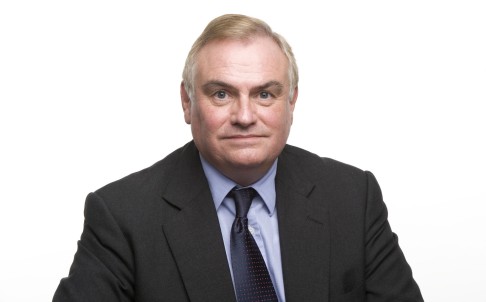Sunday, 28 July, 2013 - Kate Whitehead
South China Morning Post
Tim Hely-Hutchinson, chief executive of Hachette UK.
Tim Hely Hutchinson is group chief executive of Hachette UK, the largest publishing house in Britain. Following the opening of Hachette's sales office in Hong Kong last year to cover Southeast Asia, Hutchinson talks to Kate Whitehead about the publisher's presence in Asia and how it is responding to the challenges posed by digital distribution.
How important is Asia to your business?
The Asian market has grown significantly faster than the British or European markets and I think it will continue to do so. We've a greater awareness that Britain is a relatively small and static market, and that we should be publishing more for the world. I wanted to have a specific base here to co-ordinate and maximise the sales and publicity in Asian markets and also to tell us what's going on - to draw writers and trends to our attention. The opening of a Hong Kong office is a functional thing, but it's also a symbol and a catalyst that we're publishing for the world, and not just for Britain with a few add-ons.
How does the Asian book market differ from the UK or the US?
In Asia it's more dominated by non-fiction. It's more interested in business and self-improvement - it's less literary and more to do with getting on in life. All the markets in Asia are quite strong for children's books because Asian parents, particularly the middle class, tend to see English as essential for their children to get a head start. Our representative here is Paul Kenny - part of his role is to look out for authors in Asia. The biggest single market is eight to 11 years - it's your first reading book on your own, without your parents.
How big is the e-book market for Hachette?
It's grown so quickly. Our turnover at Hachette UK and the Commonwealth in 2009 was £1 million (HK$11.9 million) - and last year it was £50 million. It has taken off like a rocket. In fiction, about 40 per cent of our sales are electronic and that's happened quickly. It was really Amazon's Kindle that led it - the ease of the download
Full interview
How important is Asia to your business?
The Asian market has grown significantly faster than the British or European markets and I think it will continue to do so. We've a greater awareness that Britain is a relatively small and static market, and that we should be publishing more for the world. I wanted to have a specific base here to co-ordinate and maximise the sales and publicity in Asian markets and also to tell us what's going on - to draw writers and trends to our attention. The opening of a Hong Kong office is a functional thing, but it's also a symbol and a catalyst that we're publishing for the world, and not just for Britain with a few add-ons.
How does the Asian book market differ from the UK or the US?
In Asia it's more dominated by non-fiction. It's more interested in business and self-improvement - it's less literary and more to do with getting on in life. All the markets in Asia are quite strong for children's books because Asian parents, particularly the middle class, tend to see English as essential for their children to get a head start. Our representative here is Paul Kenny - part of his role is to look out for authors in Asia. The biggest single market is eight to 11 years - it's your first reading book on your own, without your parents.
How big is the e-book market for Hachette?
It's grown so quickly. Our turnover at Hachette UK and the Commonwealth in 2009 was £1 million (HK$11.9 million) - and last year it was £50 million. It has taken off like a rocket. In fiction, about 40 per cent of our sales are electronic and that's happened quickly. It was really Amazon's Kindle that led it - the ease of the download
Full interview

No comments:
Post a Comment